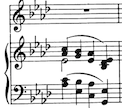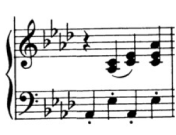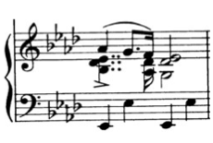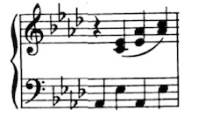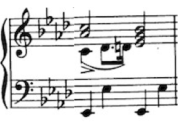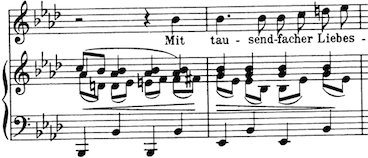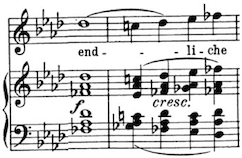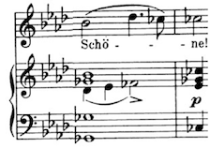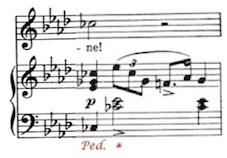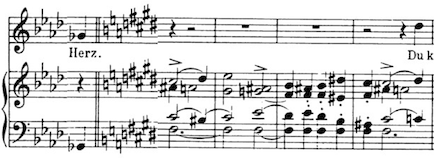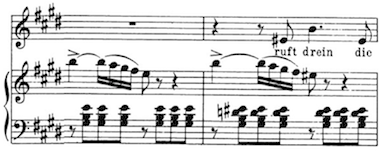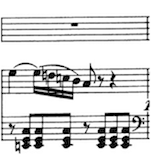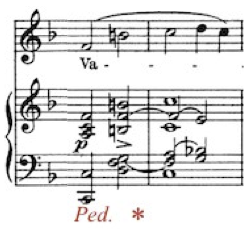Did you ever have one of those days later in life in which you came to the realisation that, quite literally, everything — and I mean everything — for which you strove, to which you aspired, to which you devoted essentially your entire life, gave you definition as an individual had not even remotely been fulfilled? Somehow I doubt it. So far, everyone I know, whether it’s from my childhood, college, to later in life (including Facebook and other social media) has to some extent achieved a level of success in life. It may not be exactly that for which one originally strove, but it may have been close; or, at least, a not unreasonable approximation. Then there are those who found a level of success in a completely different field altogether. You may have started out wanting to be a musician, but somewhere along the line, whether for personal, philosophical or simply practical (i. e., financial) reasons you ventured into a completely different line of work. Or, as in the case with many, perhaps most, artistic people, you found a way to do both and still manage to attain some satisfaction in your artistic endeavours.
I, on the other hand, have failed abysmally. Mind you, I really don’t blame anyone but myself; and perhaps, the occasional uncontrollable circumstance. Nevertheless, I fully realise that, as the cliché goes, since I made my bed I must sleep in it. That doesn’t palliate the remorse or regret, much less the pain. In fact, it only militates against any assuagement of my despondency. All it does is remind me of the sequence of bad decisions I have made throughout most of my life, the first and worst of which was wanting to be a musician — an organist in particular. But, that was only the first of many, many unfortunate, notwithstanding good intentioned, decisions: most of which were what I had considered at the time to be pragmatic or realistic junctures in light of my relative youth and aspirations, but were actually more survival expediencies than goal directed stratagems. Some decisions turned out to be just plain stupid; but, stupidity is the special preserve for the young — I guess. Eventually we’re supposed to grow out of the stupid phase; you know, the “with age comes wisdom” thing. Unfortunately, wisdom comes a little (or a lot) too late.
You see, there is this really noisome trait I have — rationalisation. I can’t tell you the number of times I left a situation — either personally or professionally — and learned very soon how bad a mistake it was. Now, almost everybody has done this sort of thing at one time or another. But, it seems there are those of us who have made a career of making decisions later to be regretted. Not occasionally, not seldom, or sporadically, but steadily, constantly, habitually. Everyone of these decisions were attempts to get myself into a situation in which I could finally find the time and space to consistently practise my craft and get my musical career back on track (operating under the delusion that it actually was at one time). Unfortunately, to list these unfortunate decisions is not within the purview of this rant and would be far too numerous much less humiliating. I have to live with these incomprehensibly obtuse decisions.
And now? Now I have pretty much abandoned the art form to which I had devoted my life. The three aspects of music in which I had hoped in some fashion to succeed — conducting, composition, the organ (not necessarily in that order), I now know will never happen. Conducting I gave up long ago, even though I am an innate conductor: vastly superior, even now at this unpractised stage in my life, to 99% of the boneheads out there;.
As to the organ, since moving to Boston and receiving the decided cold shoulder from “my guild,” I have pretty much bid my adieus. This explains my not adding any further installations to my commentary in the “Choral #3 in a” by César Franck. What the hell good is it to express ideas about how to perform a piece of music if you can’t actually demonstrate those ideas? At this point I don’t even have the confidence to apply for a church job simply because I don’t feel I could execute a decent audition anymore. Ultimately, I guess, it’s a good thing. At least I’ve come to acknowledge the reality of my pathetic station as an erstwhile organist. Oh, but there’s an additional sad irony: I masochistically signed up as a volunteer for a number of activities for the AGO convention when it was here in Boston. How’s that for pathetic?
Composing? The last and most hurtful failure of all. As a composer one always has in the back of his/her head the hope that, no matter how remote, someone will eventually perform your music. Little disgusts me more than the successful composer — or even the “unsuccessful” one who has only had a few pieces performed — who, in responding to the lamentations of his/her completely unperformed brother or sister, pontificates about how one should be doing it only for itself; that composing is an end in and of itself; you do it for the sake of the art, not for the glory, etc., etc., blah, blah, blah. That’s easy for them to say. They’ve been performed, no matter how infrequently. They’ve heard their music performed by someone other than themselves in their studio or living room. Every composer, I don’t care how artistically virtuous, composes with idea that he or she has something to share with the world, that each and every creation is meant to be heard; i. e., performed. When that hope, even in the most perfunctory or trifling manner miscarries, that desire, that compulsion to create eventually disintegrates and eventually atrophies. Why bother? I don’t expect my “colleagues,” “brother or sister” composers (much less performers) to sympathise, empathise or even remotely understand. At this point I rightly don’t care.
You see, there’s huge frustration here. I listen works by people who have absolutely no business calling themselves composers — but, then again considering our current environment — and yet, their music gets performed. Even worse, they get paid to write their drivel and even win prizes for it (case in point Libby Larsen’s little ditty she composed for the 2014 AGO Convention in Boston). I don’t need to go into why, We all pretty much know that talent has little to do with winning competitions or receiving commissions.
All of us have experienced failure and disappointment at various times in our lives, some of us more than others, some of us more than most. And then there are those of us who, in spite of our best efforts to the contrary, persist upon bungling it. I guess some of us are born to screw up; which brings me back to the rationalisation factor. Long after it had become clear that I was not going to achieve anything near, or even remote, to my musical aspirations I somehow convinced myself that there was still hope.
Anyway, it’s taken a long time, but I think I may have come to terms with my life of “should-haves” and failures — noble and ignoble. I realise at this late date that whatever I do from here on out just becomes another facet of the survival mode into which I have fallen. Oh, there are plenty of excuses, some of them plausible, even valid; but, at this point it really doesn’t make any difference. I just have to content myself with knowing that my knowledge, skill, talent and innate musical acumen notwithstanding, I will live out my years as the organist without an organ, the conductor without ensemble (vocal or instrumental), the accompanist without partner, the teacher without a student, the writer without a reader, the composer without a performer, the performer without an audience.
Ain’t life grand?

